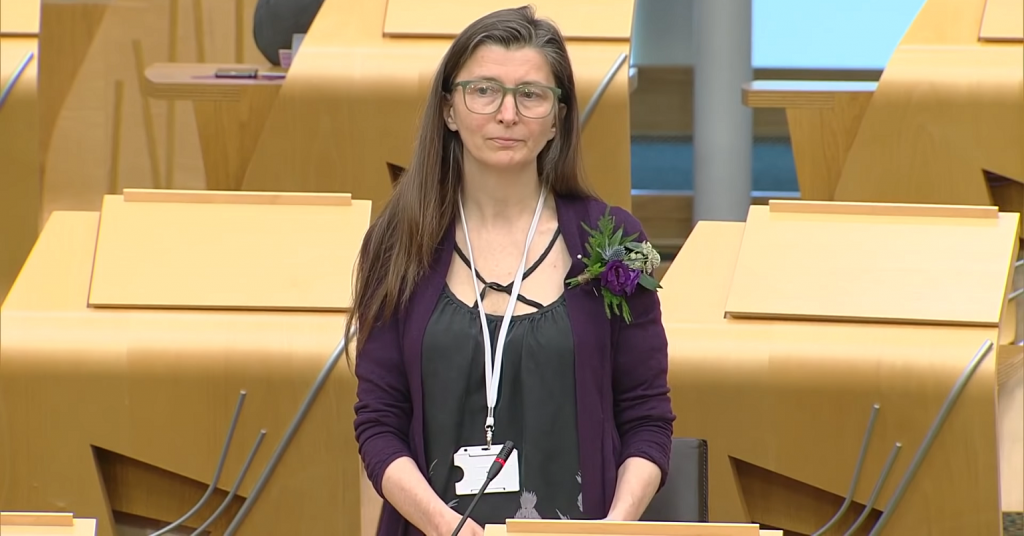Would a new Scottish Tory party succeed? Not under Murdo Fraser
Murdo Fraser, deputy leader of the Scottish Conservatives, has made headlines by proposing that his party split from the Tories in England. Like Bavaria’s CSU, they would support the Tory leader at Westminster. But they would be their own party, who chose their own policy, set their own direction.
I say like the CSU. Perhaps I should say like the Scottish Unionist Party: until 1965, the centre right party in Scotland was separate from that at Westminster. Or perhaps a more familiar analogy is the Ulster Unionists? Northern Ireland’s centre right go back and forth, but currently they have an electoral pact with the Tories. Had they won any MPs, they would have sat on the benches behind David Cameron.
The idea isn’t new. Last time there was a leadership election in the Scottish Conservatives – 2005 – Murdo decided not to run. The rumour at the time (though this was never confirmed as far as I know) was that he had been complicit with his fellow Thatcherite and friend from 1980s student politics Brian Monteith in knifing the outgoing leader David Mcletchie. Monteith was the fall guy – he took the blame and had the whip withdrawn, allowing the Thatcherite wing to live on through Fraser. Fraser himself had too much blood on his hands to step into the lime light of the leadership election. But he knew he was young, that he could bide his time. So he went for deputy, and threw an idea into the debate: he suggested that the Scottish Tories become independent. It made a few headlines, but nothing happened. Most people forgot.
But while the idea isn’t new, it might happen this time – Fraser is surely a serious contender in the election. And the idea is an interesting one for the Scottish Tories: the party has failed to make any significant gains in Scotland since Mrs Thatcher poured petrol over the country and then threw on a match, spat on the flaming corpse, and danced round the flames. In fact, at the recent Holyrood election, they lost two seats. Annabelle Goldie, their remarkably popular leader, stood down. Hence the election.
It is an interesting idea because Fraser is right that the brand is toxic -‘ in Scotland, Tory is a four letter word’ or so the saying goes. And he is right that Scottish politics has its own unique flavour. It is wrong to say that Scottish voters don’t back people on the centre right – while many Nationalists are the social democrats English people seem to see them as, there are still plenty of them who fit the “tartan Tory” nick-name. People vote for them. Similarly, it’s not like there aren’t plenty of leading figures in the Conservative party who come from Scotland. Liam Fox and Michael Gove are both Scottish Tory exiles. Last year, Rory Stewart – like Murdo (and me) a Perthshire boy – was elected MP for Penrith and the Border – Willy Whitelaw’s old Cumbrian seat. A best-selling author on foreign policy with an astoundingly rapid rise through the Foreign Office behind him, it’s hard to pretend that he isn’t an up and coming talent.
So, there are (alas) right wing voters, and there are talented Scottish Tory candidates. If the Scottish Conservates did re-launch, perhaps they could turn this ship around and mobilise Scotland’s centre right vote behind these candidates. But here’s the problem. Murdo Fraser isn’t on the centre right. He is a neo-liberal shock trooper evangelical christian.
He told me a few years ago that he had joined the Conservatives as a student because he liked what Mrs Thatcher was doing and wanted to defend it. Whereas some older Conservatives in Scotland fit into the “one nation” paternalist tradition, Murdo joined in the 80s because he loved what he saw. A desire to push the policies which made the party unelectable in Scotland are the reason he got into politics, and they are what he continues to drive him today. His place on the right of the Scottish Tories have helped make him an electoral liability in his home constituency, with the SNP consolidating their lead since he became the regular Tory candidate: the seat was Tory until 1997. In 2001. he lost the Westminster equivalent by only 8%. This May, he was handed a 21% margin of defeat by John Swinney (he was elected through the proportional regional list system). A relaunched centre right party in Scotland might have some success. But it would need to shirk its Thatcherite past. If Murdo Fraser leads this party, it’s much more likely to run to the right and into another decade of political obscurity. Good.



I’ve met Murdo on a couple of occasions. He’s a nice guy. I wouldn’t vote for him, though, if he was standing for Mayor of Toytown! Actually, I wouldn’t vote at all, but then I’m an anarchist so that’s no surprise. 🙂
Hi Green Christian,
sorry, I meant that he is both an evangelical christian and a neo-liberal shock trooper. Yes, you can be on the left and an evangelical Christian. But Murdo is on the right – in both the social and economic sense. Perhaps I should have made that clearer.
Thanks,
Adam
What’s up with equating Evangelical Christianity with the Tories and Neo-liberalism? Whilst there are clearly some Evangelicals who are on that side politically, there are plenty of us about on the left, including in the Greens.
The best possible result would be a factional split: Murdo decides to take his ball, go home and set up a new right-wing party, splitting the already marginal Tory vote and resulting in the final, complete collapse of the Tories as a viable force in Scottish politics. And if he believes he has any chance of re-invigorating the Tories with a more Thatcherite line, then he’s clearly delusional enough to do it…
I very much doubt that any party with links to the Tories would stand much chance – it’ll take more than a re-branding exercise to detoxify them. They’d need to get rid of all the people we’ve come to despise too – first among them being Murdo Fraser. Heck, no matter how much I despise the Tories, I still have respect for Annabelle – sure, I disagree with her on nearly everything, but it’s a good-faith disagreement. Murdo, on the other hand, is a dangerous nutter who needs to be kept as far away from the levers of power (and the family silver) as humanly possible.